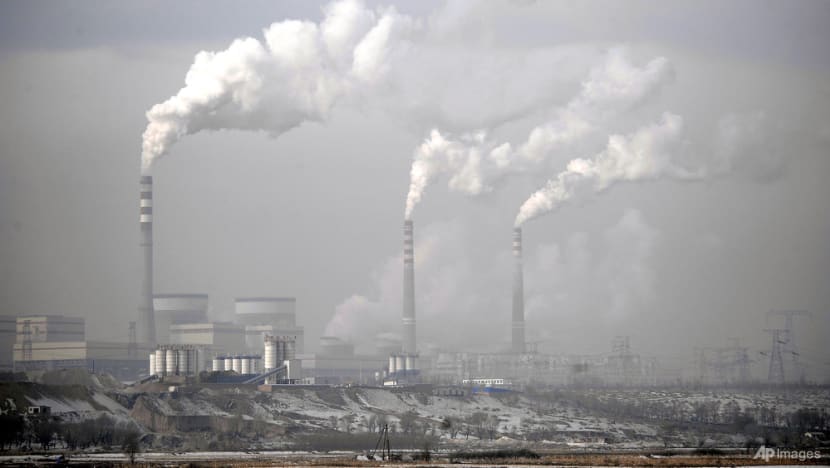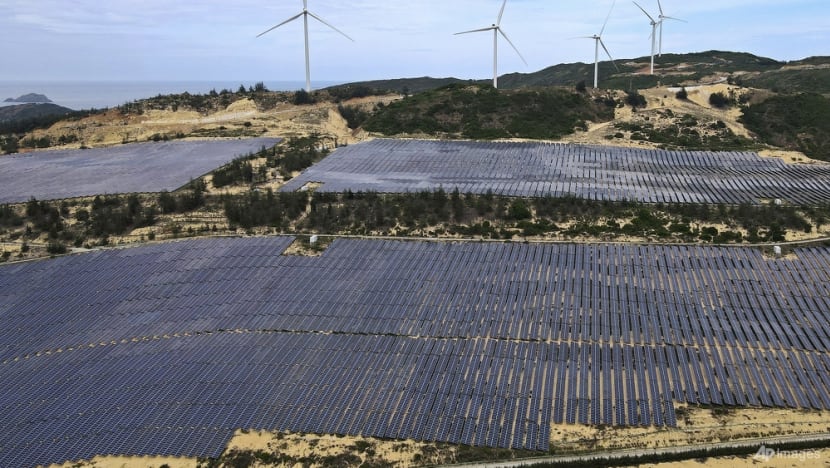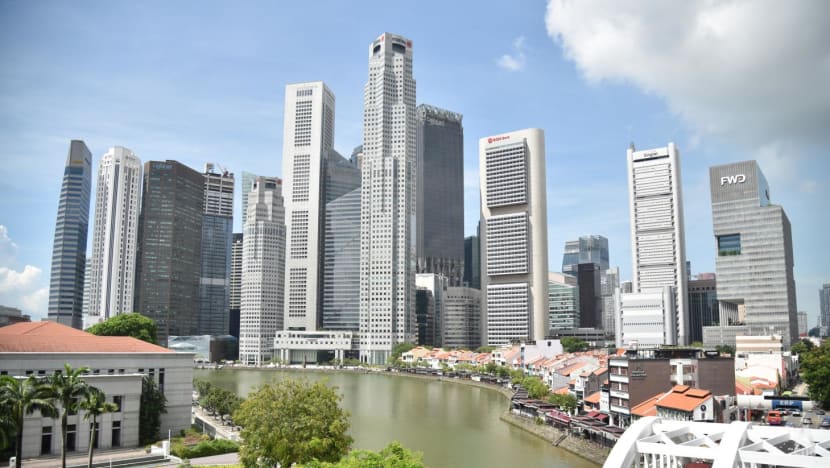
There is a huge climate financing gap in Asia and globally, with estimates showing that as much as US$5 trillion is needed annually to achieve net zero emissions.

SINGAPORE: There is an urgent need for Asia to accelerate its financing efforts in order to achieve its net zero emission targets, especially as it contributes a majority of global emissions, said a regional director at the Asian Development Bank (ADB) on Wednesday (Aug 16).
“The challenge is great. More than 50 per cent of the global emissions of the world come from Asia and the Pacific. Tackling climate change is critical and it needs to be done today,” Mr Jackie Surtani, the ADB’s regional director for Singapore, told CNA’s Asia First.
He noted the huge financing gap in Asia and globally, with estimates showing that as much as US$5 trillion is needed annually to achieve net zero emissions.
Mr Surtani called for a concerted effort involving both public sector commitment and increased private sector investment to meet the goals.
Having been in Singapore for two months, Mr Surtani said the country can play a pivotal role in driving sustainable investments for climate financing, given its position as a regional hub.
“Singapore is really the ecosystem for Asia,” he said, noting that commercial banks, multilateral organisations and many big energy companies have decided to set up their headquarters in the country.
“Being with your clients here (and) understanding what the needs are here in Asia, is critical,” said Mr Surtani, adding that the climate financing crisis requires innovative solutions.
He added that he has been impressed by the efforts of various government ministries and bodies in Singapore, including the Ministry of Finance and the Monetary Authority of Singapore (MAS), for their dedicated approach to addressing the issue.
Mr Surtani noted that around 90 per cent of the world's coal-fired power plants with an asset life of more than 20 years are situated in Asia.
“So this is an issue that not only Singapore, but all of Southeast Asia, needs to partner up and tackle,” he said.

Mr Surtani said that to encourage private sector participation in large green energy infrastructure projects, which are typically public sector-driven, there has to be robust regulation, along with attractive prospects on investment returns.
“The issue is not only capital, the issue is to create what I call bankable deals. And that means creating a strong regulatory environment in a lot of these countries, making sure that there are consistent policies, and really encouraging private sector investment,” said Mr Surtani, who has over 30 years of experience in the industry.
“I always say the first transaction in a country is very challenging, but the second and the third are much easier to do.”
He also highlighted the transformative potential of collaboration, citing the example of Vietnam, where the renewable energy sector has grown substantially.

“Three years ago, Vietnam had very little renewable energy. The ADB has done six private sector renewable energy deals in Vietnam, and now commercial banks and other actors are looking at Vietnam as having a strong potential for renewable energy,” said Mr Surtani.
He said the Vietnam example showcases the need to build up a consistent track record in order to instil confidence in investors.
Mr Surtani acknowledged that countries may be left vulnerable to accumulating unsustainable public debt while tackling climate change, but remained optimistic towards the prospects of attracting equity investments.
“The issue is there is plenty of equity (and) there is also a lot of capital. I think for investors, coming into Asia is that they want to be attracted by stable returns, and it's about creating that ecosystem (and) environment to attract that. I don't think there is any issue in terms of attracting suitable equity,” he said.
He said that Singapore is in a “fantastic” position as a lot of big private equity firms are headquartered in the country, and are looking for places to invest and deploy their money in.

Despite competition from other global regions, Mr Surtani said creating an attractive investment environment in Asia could yield favourable outcomes, not only for environmental preservation but also for wider economic growth.
“Capital goes everywhere. Does the United States offer better returns? Does Europe offer better returns?” he asked.
“It's about creating that environment here in Asia to bring people here and say, ‘Look, with the growth potential you have here in Asia, this is still a very attractive place to invest in’.”